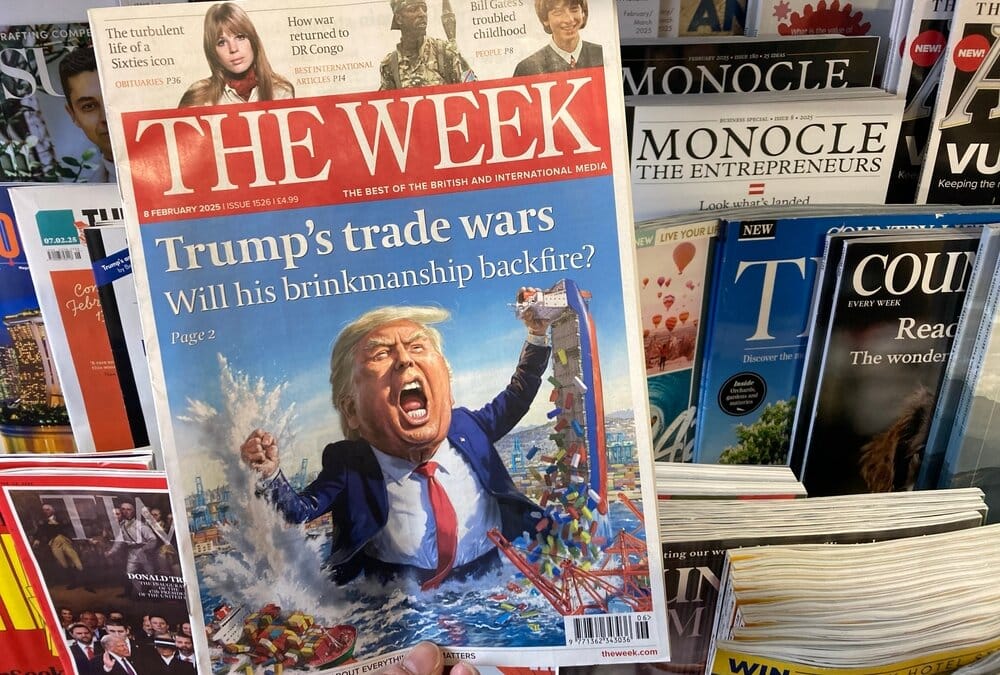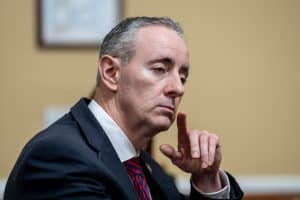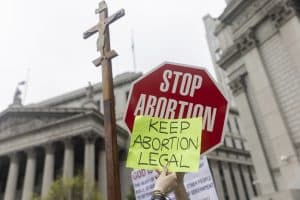President Biden left behind an economy that was pretty healthy, conventionally speaking. Unemployment was low and wages were rising, but stubbornly high costs of living opened a door for Donald Trump’s political comeback.
Yet Trump’s tariffs could soon cost Americans thousands more each year. They’ve erased trillions from retirement accounts, weakened the dollar, and led many economists to predict a recession.
Again and again, Trump has announced tariffs only to claw them back — and issued exceptions only to add new levies afterward. How does he make these decisions? “You almost can’t take a pencil to paper,” he told reporters. “It’s really more of an instinct than anything else.”
But building an industrial base takes decades of “pencil to paper” planning — like Biden tried to do for semiconductors and green jobs, programs Trump is actively trying to kneecap. No sane business would build factories, hire and train workers, and re-engineer its supply chain when the rules can change in the space of a tweet.
By contrast, Vox’s Miles Bryan reports, China’s leaders “have been preparing, hardening their markets, and building relationships with other countries” since Trump’s first term. With Trump also busy alienating the rest of the world, “China could come out of this looking like the more stable partner.”
So American consumers will get stuck with higher prices. Workers will lose jobs. And seniors will watch their retirement accounts crash. But for Trump’s billionaire friends, there’s an offramp: bribery.
If we simply swap “free trade” for crony capitalism, those billionaires will make out just fine — the communities they hurt won’t.
During Trump’s first term, the Commerce Department became “a safe space for influence-peddling and extortion,” the Washington Monthly’s Jonathan Alter reports, as companies bought tariff exemptions with political contributions. It will be even more brazen in Trump’s second term, which he opened by firing the independent inspectors who root out corruption.
“While screwing most of the world with his original ‘Liberation Day’ tariffs,” Alter notes, “Trump quietly exempted metals and minerals that Elon Musk and other manufacturers need.” Big Oil, whom Trump summoned to raise $1 billion for his reelection, also got exemptions.
Companies or foreign governments could also seek favors by buying Trump’s meme coin, or one of those $5 million Mar-a-Lago meetings he’s been selling. “If you define corruption as making side deals with the Trump administration for special exemptions, that is certain to happen on a grand scale, and may well be the intent,” Oklahoma professor Bill Megginson told HuffPost.
There’s also enormous potential for stock manipulation. Trump ally Rep. Marjorie Taylor Green (R-GA) bought tens of thousands in stocks right before Trump abruptly reversed most of his “Liberation Day” tariffs, rallying prices again.
Trump himself was filmed in the Oval Office personally congratulating fellow billionaires for how much money they made off his about-face. ‘He made $2.5 billion today,” Trump said, pointing to Charles Schwab. “And he made $900 million,” Trump gestured to someone else. “That’s not bad.’”
Sorry — it’s a club and we’re not in it.
Trump built his political base in part by railing against unfair trade deals that devastated many heartland communities. As a proud Ohioan, I get it. But Trump cynically turned people’s anger toward “immigrants” and “China” — and away from the billionaires and corporations that actually sent jobs and factories overseas, where they could pay less and pollute more.
This isn’t a recipe for an industrial comeback. It’s a recipe for corruption.
If we simply swap “free trade” for crony capitalism, those billionaires will make out just fine — the communities they hurt won’t. Instead, we need fair trade rules written with real input from workers, environmentalists, and community advocates rather than just corporations.
We need rules to raise wages, preserve jobs, and limit pollution in all countries — and to end this global race to the bottom where only billionaires win.
This op-ed was distributed by OtherWords.org.







